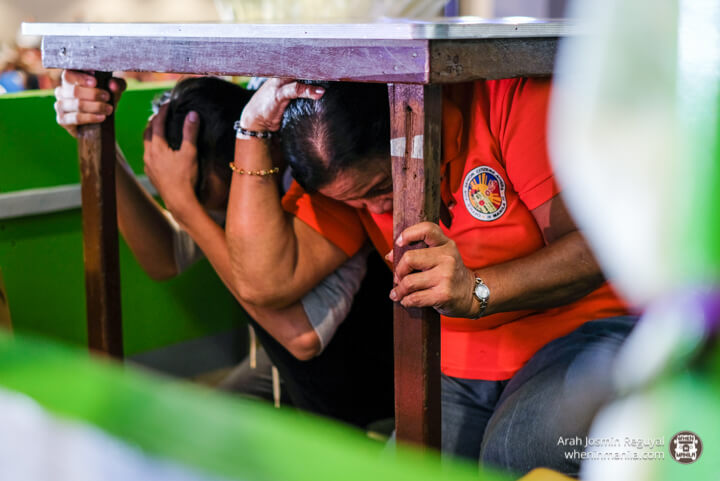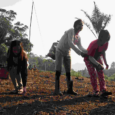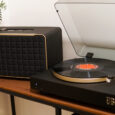If you’re living in areas that sit on top of fault lines like Marikina, Pasig, Paranaque, and Makati, or even if you’re not, earthquake preparedness can save lives.
With the “big one” said to be imminent in our lifetime, it helps a lot to be a couple of steps ahead in terms of preparedness and being knowledgeable on what to do before, during, and after an earthquake.
Here’s a refresher.
It is virtually impossible to predict the exact time when an earthquake will occur. This is why it can be terrifying. What we can do, aside from pray for safety, is to equip ourselves with proper knowledge on earthquake preparedness.
Here are some tips on what to do before, during, and after an earthquake:
Before an earthquake
- Make sure that you always have a working flashlight, extra batteries, first aid kits, fire extinguisher, and food supplies in a container that’s easy to grab when disaster strikes.
- Learn earthquake drills. Many schools and offices regularly do this so pay attention.
- Come up with an emergency plan and discuss it with your family. This should include meeting places, people to contact, etc.
- Make sure that each family member has something that can call attention in case they get trapped, like a whistle, so they can be rescued.
During an earthquake
- Keep calm. It’ll be hard to stay calm initially because you’ll get scared, which is normal, but always remember that you need the presence of mind to stay alive. Don’t let fear take over.
- If you’re indoor, stay inside. The Center for Disease Control and Prevention (CDC) has 3 tips: drop, cover, and hold on. Drop on the floor on your hands and knees, take cover under a sturdy table or any low-lying furniture that won’t fall on you, and hold on. You’ll have a lesser chance of getting injured by staying away from falling objects.
- Don’t run outside or to another room while everything’s still shaking.
- Don’t stand under a doorway. Contrary to popular belief, this isn’t stronger than other parts of the house. You’re better off hiding under a table.
- Stay away from windows and glass doors.
- Always protect your head and neck. When you’re crouched under a table, put both hands over your head.
- If you’re in the kitchen, turn off the stove.
- Don’t light matches or use any flammable tools because the tremor could’ve broken gas pipes.
- If you’re outside, stay away from buildings, anything that has glass, and electrical poles.
- Stay low on the ground to avoid falling.
- If you’re in a moving vehicle, stop quickly and safely. Park the car on the shoulder but make sure that you’re far from any electrical poles or trees that may fall on you. Resist the temptation to go out unless really necessary.
- If you’re near the beach, go to higher grounds immediately.
- And oh, I know you’ll be tempted to take videos or photos of everything, which is okay only if you’re using it to spread information but it should be the last thing you do. Remember that your safety is more important than getting hundreds of Facebook likes.
After an earthquake
- After the ground stops shaking, stay still for a few seconds and check if it’s safe to get out of hiding and move.
- Check for injuries. If you’re with others, see if everyone is unharmed. Apply first aid when necessary.
- Try to smell gas. Broken gas pipes are common after earthquakes, so make sure you don’t light any flame. If you do smell something, open windows immediately. Similarly, be careful when using electrical appliances.
- Exercise caution when moving around to prevent shards of glasses from cutting you.
- If you’re outside, stay away from damaged buildings and electrical poles.
- Be extra careful when driving and watch out for sinkholes and broken pavements.
- Stay away from beaches.
- Always expect aftershocks.
Shared with us earthquake preparedness tips! Share this with friends to help them familiarize themselves on what they can do before, during, and after an earthquake.





